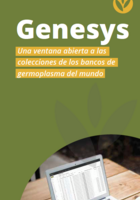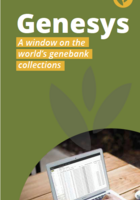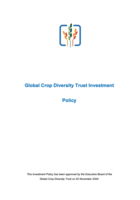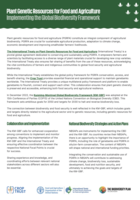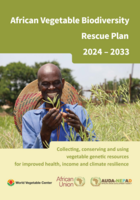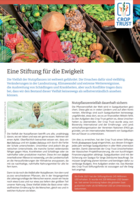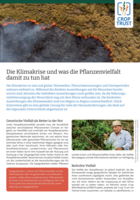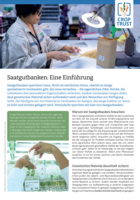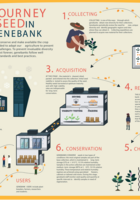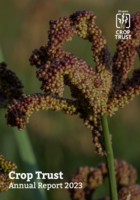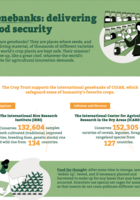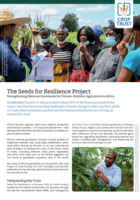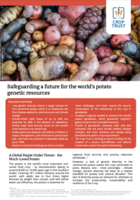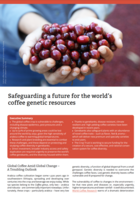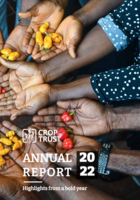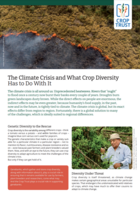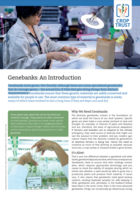Genesys Brochure Spainsh
Una ventana abierta a las colecciones de los bancos de germoplasma del mundo
10 Apr 2025
Crop Trust Investment Policy
This Investment Policy helps guide and support effective decision-making in relation to the investment of the Endowment.
2 Nov 2024
Plant Genetic Resources for Food and Agriculture: Implementing the Global Biodiversity Framework
Plant genetic resources for food and agriculture (PGRFA) constitute an integral component of agricultural biodiversity. PGRFA are crucial for sustainable agricultural production, adaptation to climate change, economic development and improving smallholder farmers’ livelihoods.
1 Oct 2024
Crop Trust 101
Brochure with the most important information about the Crop Trust.
1 Sep 2024
African Vegetable Biodiversity Rescue Plan (2025‒2035)
The African Vegetable Biodiversity Rescue Plan aims to combat hunger, malnutrition, poverty, and climate change by preserving and utilizing Africa's vegetable biodiversity. This initiative, aligned with global and regional...
29 Aug 2024
2023 Annual Report & Financial Statement
Crop Trust’s Annual Report 2023 provides milestones and highlights from our work during 2023.
22 Apr 2024
Infographic: Genebanks - delivering food security
What are genebanks? They are places where seeds, and other living material, of thousands of different varieties of the world’s crop plants are kept safe. Their mission? To serve up, like a great chef, whatever the world's appetite for agricultural innovation demands.
1 Oct 2023
2022 Annual Report & Financial Statement
Learn about Crop Trust's work, impact and results in our 2022 Annual Report and Financial Statement.
11 May 2023
The Climate Crisis and What Crop Diversity Has to Do With It
The climate crisis is all around us. Unprecedented heatwaves. Rivers that “ought” to flood once a century now burst their banks every couple of years.
14 Oct 2022
Genebanks: An Introduction
Genebanks store genes. Not literally, although there are some specialized genebanks that do manage genes – the actual bits of DNA that give living things their distinct characteristics.
14 Oct 2022

